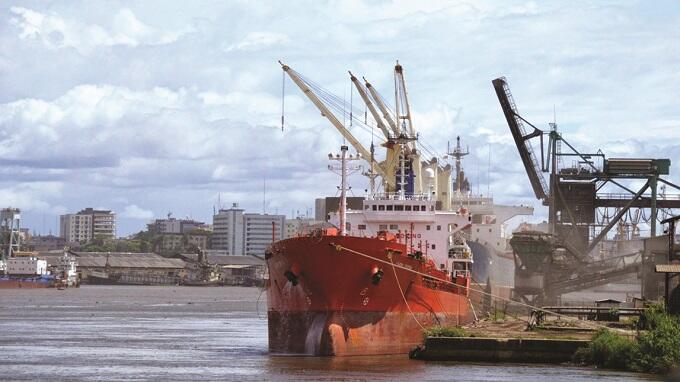
WTO trade facilitation deal needs its own facilitation (en)
its potential. For a start, the rest of the membership must ratify it
The real work is just beginning,’ said World Trade Organization (WTO) Director-General Roberto Azevêdo on 22 February 2017. He was warning against complacency as the Trade Facilitation Agreement (TFA) entered into force after 20 years of hard slog.
Make no mistake: the TFA is a major achievement. By streamlining customs and other border procedures, and with assistance for developing countries built in, it promises a huge boost to world trade. The biggest gains should go to the countries needing the most reform. (Much of this was described in detail in International Trade Forum 1/2017.)
Behind the celebrations and the dramatic
numbers lie some hard truths.
Those foreseeing the gains the TFA makes
possible make one crucial assumption: that the
agreement is fully implemented. That result is
a long, long way away and much more needs
to be done if we are to get anywhere near it.
First, ‘entry into force’. The celebrations
were about the ratifications reaching the
two-thirds of the membership needed for
the agreement to enter into force.
Drowned out by the cheering was the
fact that the agreement has only entered
into force in the ratifying countries.
The remaining members also have to ratify the TFA if it is to apply to them and for them to receive any aid under the agreement.
Four months after those celebrations only seven more members have ratified, less than half the 16 that ratified in the four months up to 22 February. In other words, 44 countries still have not ratified the TFA. The agreement still does not apply to over one-quarter of WTO members. Among them are Argentina, Egypt, Indonesia, South Africa, and several are least-developed countries (LDCs).
Experts are confident that ratifications will continue to flow in because the agreement is in a given nation’s own interests. Unfortunately, the publicity campaign has gone quiet and the pressure has eased off. Outside the limelight, some countries may no longer consider this a priority.
That said, those that have not ratified will still be able to trade more easily with other countries because each applies the provisions to all comers. Still, larger countries that have not ratified might not implement the agreement and may cause problems for their trading partners.
NOTIFY AND IMPLEMENTThe agreement includes provisions on governments
providing information and allowing
consultation on laws and regulations; how rulings
and appeals are handled; impartiality and
non-discrimination; fees; release and clearance
of goods; cooperation between border agencies
and between customs authorities; freedom
of transit; and various formalities.
Developed countries simply have to
implement everything. Most have already
done a lot unilaterally.
But for developing countries, ratifying the agreement says nothing about what each country is going to do. They can choose how they want to handle its provisions under three categories:
- Category A – Measures they will implement immediately (or one year later for LDCs). Some, such as Egypt and Indonesia, have already notified under this category even though they have not yet ratified the agreement, suggesting their ratification process ought to be under way
- Category B – Measures to be phased in over a notified period.
- Category C – Measures that will be phased in so long as assistance is provided.
They have to tell other members – and the world at large – what they have chosen to do and under which category. The information is shared through notifications to the WTO.
So far the stream of notifications has been promisingly steady, if slow. By late June the WTO had still received less than half of the notifications expected for the full range of options. The figures (www.tfadatabase.org) are broad and hide crucial detail. Even if a country has handed in notifications in all three categories the content might not cover all the provisions, so further notifications will be needed.
Often overlooked is how notification also plays an important role domestically. It means the country’s government is getting its act together and is prepared to tackle any vested interests that might oppose reform. The agreement also encourages cooperation between various agencies.
CUSTOMS PROCEDURESIt is an open secret that customs procedures in a number of countries are prone to corruption and inefficiency. Change can also threaten officials’ sense of security.
Ultimately, the country streamlining its procedures best gains the most. Its imports and exports enter and leave the country more quickly and at lower cost.
TECHNICAL ASSISTANCEThe TFA does not commit donors to give assistance. On this, it is a statement of intent. Donors said they could not legally bind their budgets.
While implementing this side of the deal has only just begun, in general aid for tradefacilitation has been around for some time. For example, the European Union (EU) says its latest data shows over €700 million (US$795.2m) provided in the period 2008-12. That is before the WTO deal was struck.
The TFA Facility website’s list of donors
includes 17 developed countries (including
the EU and some of its members), eight
international organizations, 12 regional
organizations, five transport organizations
and four others, with links to their
programmes.
All of this means it will take time
and effort for the agreement to achieve
its potential. In some countries, probably
a long time – longer than the economists’
simulations assumed. As Azevêdo said, it’s
only just begun.



